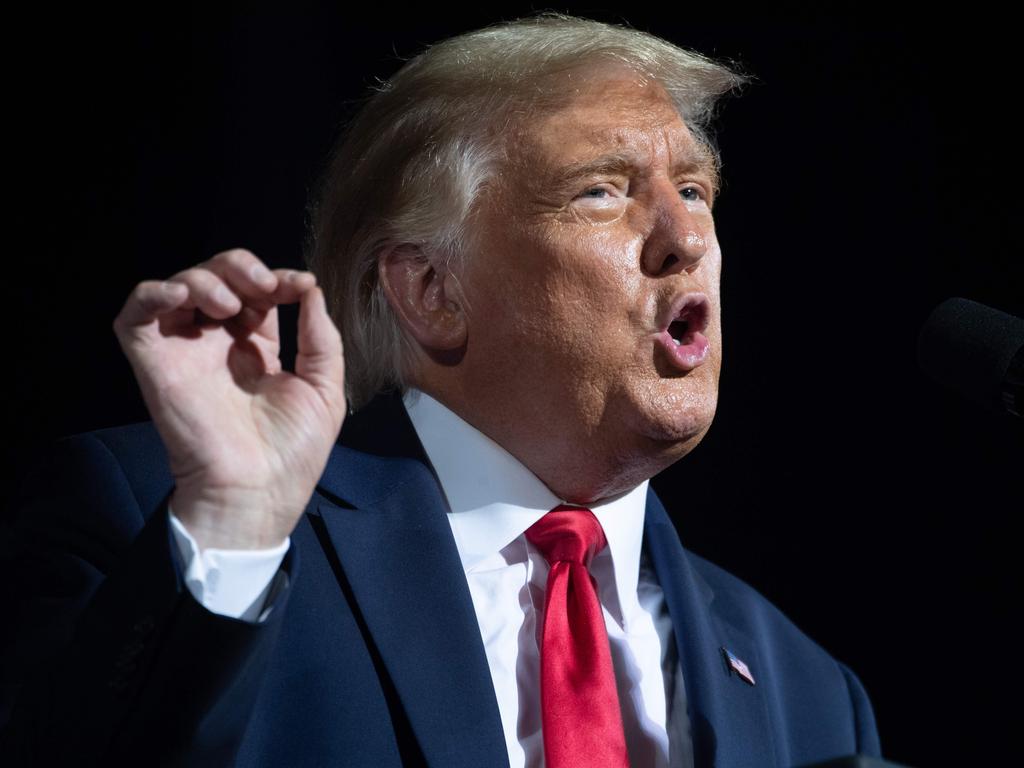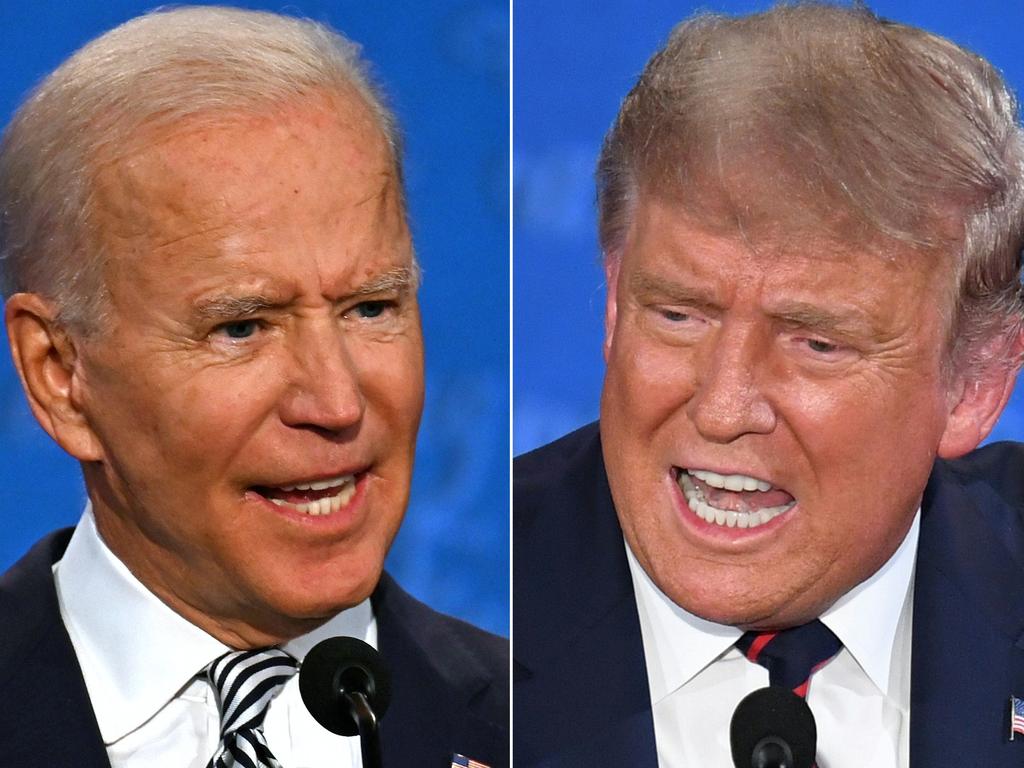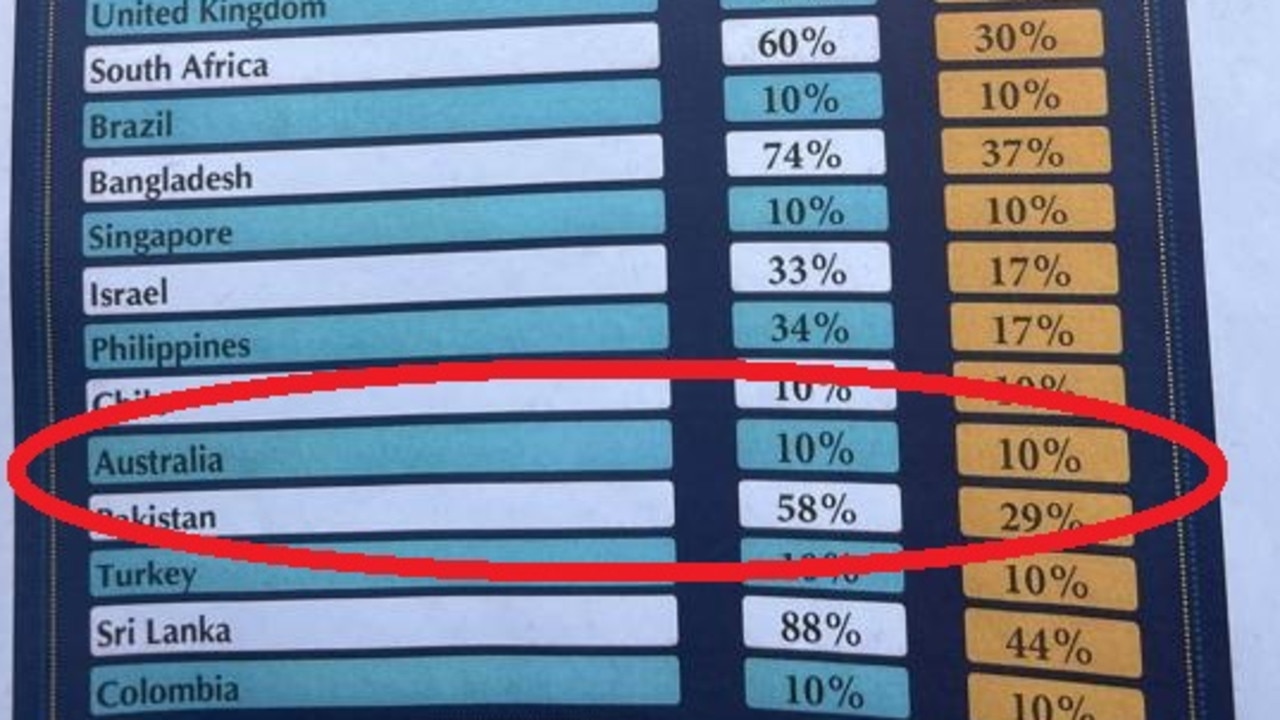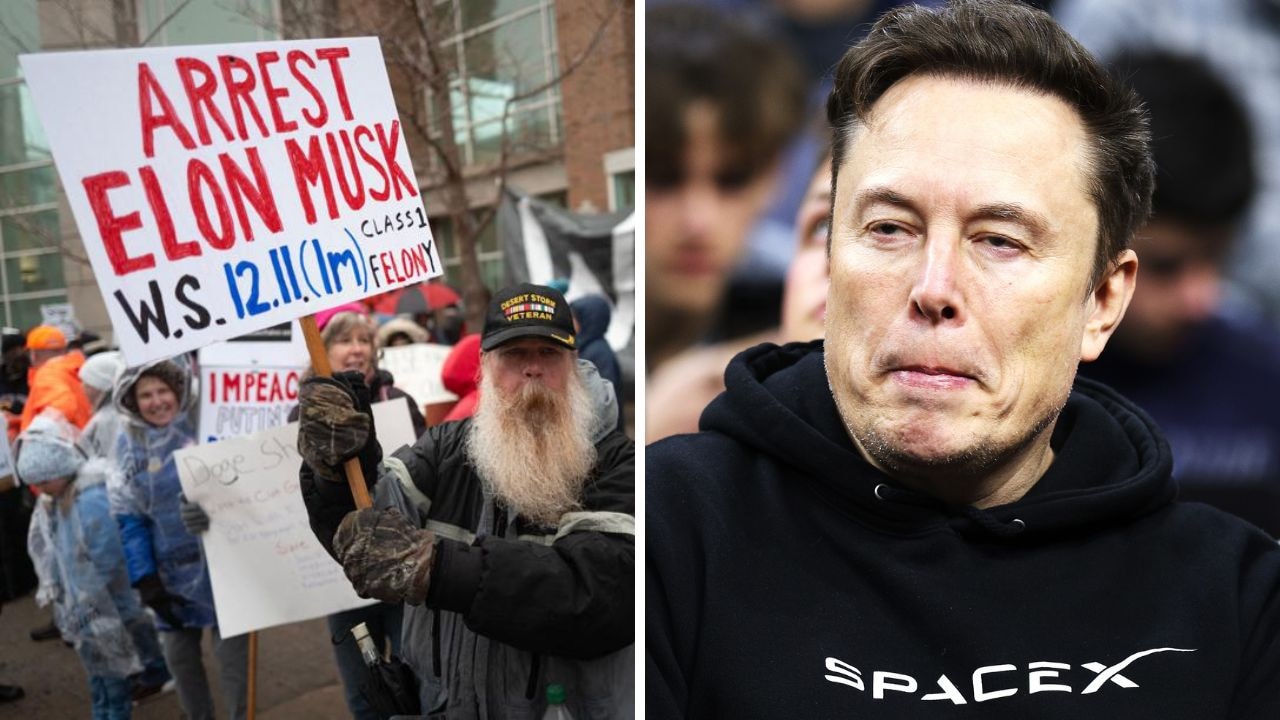Possible psychological reason behind Trump’s refusal to accept US election loss
Donald Trump is continuing to refuse to accept defeat despite the huge election result. There may be a big reason for that.

Many people are struggling to understand why Donald Trump is refusing to accept the outcome of the US election, but one expert has suggested there could be a psychological reason for his behaviour.
Senior lecturer in psychology at Federation University Australia, Evita March, drew comparisons between Mr Trump’s recent and past behaviour and traits related to grandiose narcissism and cognitive dissonance.
Dr March suggested that applying these psychological models may provide a better understanding of why some people are unable to accept defeat, even in the face of overwhelming evidence.
RELATED: Trump’s brazen plan to cling to power

In an article published by The Conversation, Dr March explained people who display traits of grandiose narcissism may be “unable to accept, or even comprehend, that they have not won”.
Cognitive dissonance, which describes the discrepancy between what we believe and what actually happens, could also provide insight into why people “double down on beliefs in the face of overwhelming contrasting evidence”.
“People who show hallmarks of grandiose narcissism are likely to exhibit grandiosity, aggression, and dominance over others,” Dr March explains.
“The grandiose narcissist is competitive, dominant, and has an inflated positive self-image regarding their own skills, abilities, and attributes. What’s more, grandiose narcissists tend to have higher self-esteem and inflated self-worth.”
A recent study published by the National Center for Biotechnology Information noted that grandiose narcissists often “externalise blame” when confronted with failure.
“Several studies have shown that narcissists are more likely to take credit for a successful outcome and blame a failure on others than non-narcissists,” the research noted.
Studies have also found that when confronted with challenges and losing, narcissists are more likely to react in a negative way and respond with hostility.
These characteristics are in line with Dr March’s explanation of how grandiose narcissists react to defeat, adding that they do not, or cannot, accept they are responsible for the failure.
“Based on the profile of the grandiose narcissist, the inability to accept defeat may best be characterised by an attempt to protect the grandiose positive self-image,” she said.
“Their dominance, denial of weaknesses, and tendency to devalue others results in a lack of comprehension it’s even possible for them to lose.”
Another explanation of why people might refuse to accept fault or failure is by looking at cognitive dissonance behavioural traits.
“When presented with contrary evidence, such as defeat or failure, the grandiose narcissist is likely to experience cognitive dissonance,” Dr March said.
“In an attempt to reduce the discomfort of this dissonance, the grandiose narcissist redirects and externalises the blame. This strategy of reducing dissonance allows the grandiose narcissists’ self-image to stay intact.”
RELATED: What’s been Trump’s greatest accomplishment? Have your say in our online poll

RELATED: What Donald Trump’s lawsuit says
From the moment Joe Biden started closing the vote gap in key states, Mr Trump was calling for the vote count to be stopped and throwing around claims of fraud.
He also made several false declarations on election night that he was ahead in multiple key states and had won the election.
Traditionally, after the winner of the election is called and makes their victory speech, the losing candidate will publicly concede defeat.
It has been days since Mr Biden surpassed the 270 Electoral College votes needed to win, yet Mr Trump has given no indication that he plans to go quietly.
If he refuses to concede, then he will become the only presidential candidate in modern history to do so.
Mr Trump’s campaign has already filed more than a dozen lawsuits across multiple states, including Pennsylvania, Georgia, Michigan, Arizona and Nevada.
All the lawsuits relate to claims of widespread voter fraud.
Dr March warned if Mr Trump’s behaviour really is the product of grandiose narcissism and dissonance then people shouldn’t “hold your breath for an apology, let alone a graceful concession speech”.
Comments from Ruth Ben-Ghiat, a professor of history at New York University, echo this line of thinking, saying Mr Trump was likely to do everything he could to avoid giving a concession speech, which he sees as “public humiliation’.
“It’s easier to claim the whole election was a fraud than admit that his policies turned his people against him in numbers sufficient to ensure his defeat,” she told AFP.
“We can expect him to continue in this vein and delay the public humiliation of a concession speech.
“We should be watchful of what he might do over the next months in a vindictive spirit.”




